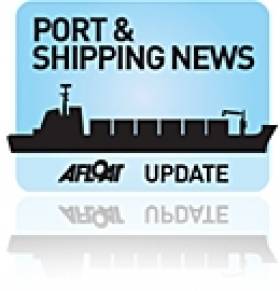Displaying items by tag: FGS RheinlandPfalz
All three visiting vessels were to be made open to the public over the weekend while berthed alongside the Deep Water (Coal) Quay downriver of the East-Link Toll-Lift road bridge.
FGS Brandenburg is the leadship of the Type-123 'Brandenburg' class. For a photo of the 4,900 tonnes frigate arriving in the Grand Harbour in Valleta, the capital of Malta (in 2004) click here.
The 20,240 displacement tonnes FGS Berlin is also the leadship of her namesake class of auxiliary fuel replenishment/stores-ship. The 174-metre long Berlin class ship (see photo) also has the capability to convey containers. The last of the trio, FGS Rheinland-Pfalz (photo) is a Bremen class frigate of 3,680 tonnes.
Since the Libyan crisis started in late February, the Maltese capital has been frequently used as a strategic transitional hub-port for naval vessels, including several calls by the UK's Type 22 frigate HMS Cumberland (F85). Earlier this month the Type 42 destroyer HMS York (D98) was also conducted to assist fleeing UK and foreign nationals from Benghazi.
In addition to other navies, Valletta has been used by ferries chartered by governments to assist in the evacuation of thousands of fleeing foreigners, mostly from Europe, though many other emigrants from Africa and Asia remain stranded.





























































